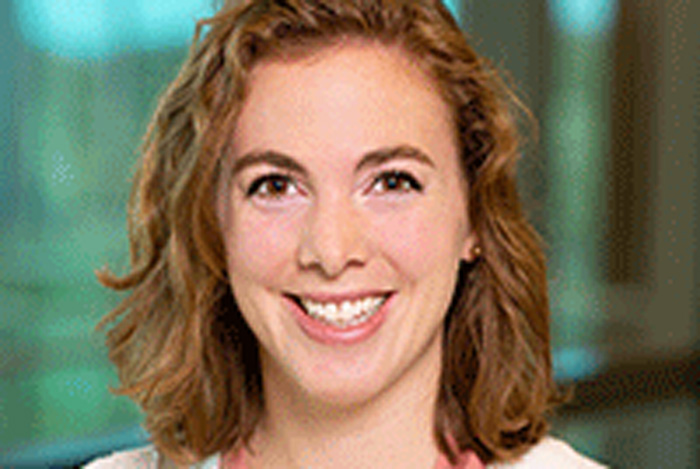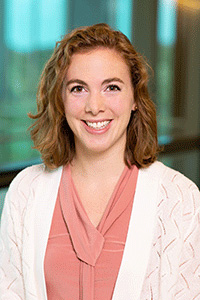Dickinson College
Finding Solutions for Improving Public Health

Susan Buckenmaier

Susan Buckenmaier ’16
Biochemistry & molecular biology major and former ROTC Cadet Susan Buckenmaier ’16 attained a two-year fellowship working for the National Cancer Institute while also serving her country in the U.S. Army Reserves. This August, she will begin enhancing her training by pursuing a Ph.D. in environmental epidemiology at Emory University.
Can you speak to how Dickinson’s useful liberal-arts education helped you along your career path?
As a biochemistry & molecular biology major, it could be easy getting lost in conquering calculus, physics and organic chemistry, but Dickinson’s liberal-arts requirements gifted me with a reason to explore other interests, such as music, history, sociology, etc. These experiences helped me decide to pursue more education and a career in public health.
What was your favorite activity/organization at Dickinson?
I was fortunate to be a recipient of a four-year ROTC scholarship to Dickinson College during my first semester on-campus. While with the Blue Mountain Battalion, I made my closest friends and learned some of my biggest life lessons. My Dickinson experience was greatly enhanced by the ROTC program, which allowed me to commission into the U.S. Army Reserves, where I am currently serving as a first lieutenant alongside my civilian career working at the National Cancer Institute as a research fellow.
How has Dickinson’s focus on global education impacted your life or career since graduation?
Although I did not have the opportunity to study abroad while at Dickinson, I was able to complete a summer abroad in a cultural exchange program to Dominica through ROTC, which was a fantastic experience. Also through ROTC, I was able to interact with the Army War College’s International Fellows, which was also a unique learning opportunity. Public health extends beyond the borders of the U.S., and Dickinson helped prepare me to think globally in all that I do.
What jumps out as a great memory from your time at Dickinson?
There are too many to pick just one! I think some of my favorite memories were made in the hours sitting in the caf at the end of our days or enjoying the sunny days on the quad.
How do you stay involved with Dickinson?
I continue to make a point to visit with Dickinson friends near and far as often as I can. (Most of my wedding party will be made up of my fellow Dickinsonians!) I also enjoy attending the Dickinson alumni events. I think it’s a great way to connect with people nearby both to network and meet people in your area.
How did you get interested in your work, and what about it excites you most?
I became interested in public health and its role in the development of chronic disease in Associate Professor of Biology Michael Roberts’ “Biology of Cancer” capstone class I took my sophomore year at Dickinson. His class delved into the biochemistry behind why cancer occurs and also took time to think about cancer from a human perspective, encouraging discussions that expanded beyond what was happening at the cellular level to population health. He also introduced me to one of my all-time favorite books, The Emperor of All Maladies.
Epidemiology plays a crucial role in defining the health status of populations and risk factors that are detrimental to general health. I am excited to be working in a field that can highlight issues, both chronic and acute, and try to find solutions that have the power to incrementally change the health of our populations, however big or small, for the better.
What does your current work entail?
I am currently finishing a two-year fellowship position at the National Cancer Institute where I assist in the development, management and dissemination of research activities related to two data linkages. Beginning in August, I am excited to start a Ph.D. program in environmental epidemiology at Emory University, where I hope to better understand, measure and evaluate the impact of traumatic environmental and occupational events to better prepare those affected by and responding to the event. I can’t wait to start this next chapter in my career and education!
What comes to mind as something unforgettable that you’ve done since you graduated?
I am having trouble coming up with an answer to this question—I think I have a lot to look forward to in the next few years between starting a Ph.D. program, moving to Atlanta and getting married this time next year. I am excited to see what the future holds!
Published June 26, 2020